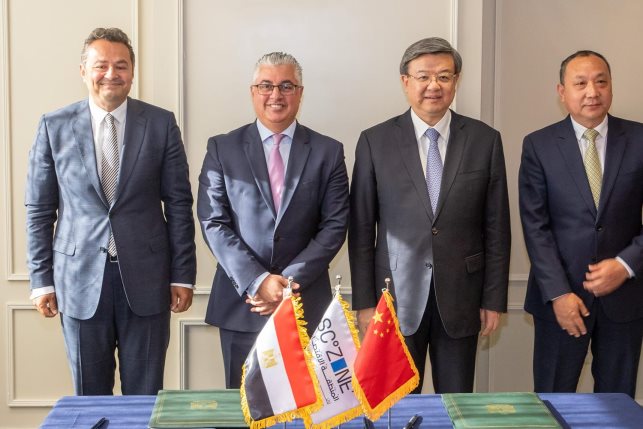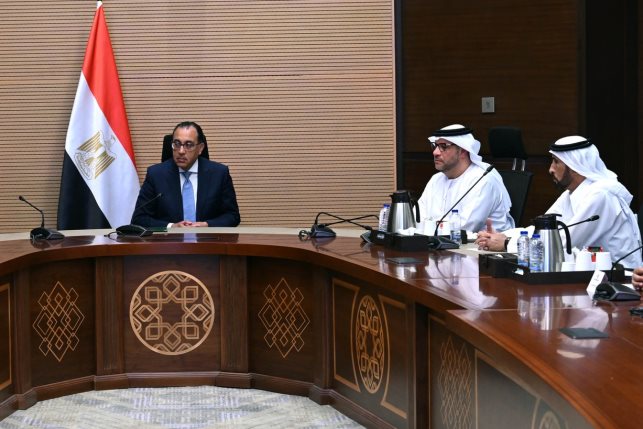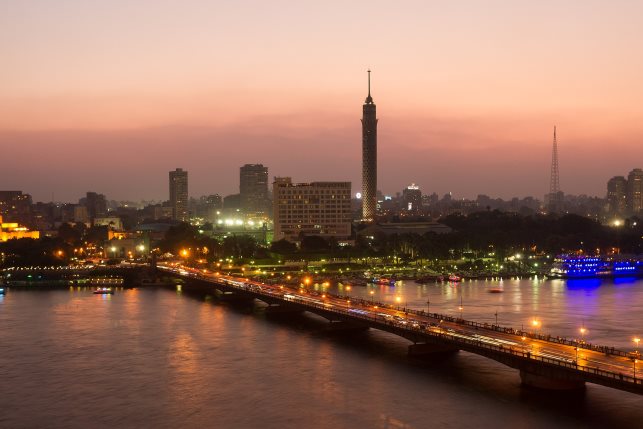The non-ugly truth about the Egyptian government’s involvement in the private sector
Business Today talks to senior government officials on the government's "heavy" involvement in the private sector

The Egyptian government is working on developing a clear strategy for the next five years that defines its role, areas of participation in economic sectors, and sectors to be led by the private sector, Egyptian Prime Minister Mostafa Madbouly said on Tuesday.
This strategy is planned to be announced by the end of the year, in implementation on the principle of transparency, and to inform the local and foreign private sectors about promising investment opportunities in the country.
On Sunday, AFP published an interview with Egyptian business tycoon Naguib Sawiris in which he warned that the Egyptian government's “involvement” in the private sector “makes for an unfair playing field.”
"There's still competition from the government, so foreign investors are a bit scared off. I myself don't even bid when I see government firms [in the race] because it's not a level playing field," Sawiris said to AFP.
Sawiris went on to say that "companies that are government-owned or with the military don't pay taxes or customs."
It was not the first time for Sawiris to comment on the government’s investment in the private sector since 2014 as he believes “it is not sustainable.”
However, Sawiris never explained his statement with numbers and figures that show how the investors, whether Egyptian or foreign, were unable to invest in any sector in the Egyptian economy because of the government’s “involvement” in investing in private sector.
Senior officials within the prime minister office, ministry of planning, and Sovereign Fund talked to Business Today, stating that these kind of statements lack substance and does not consider the current phase that the Egyptian economy is passing through.
Egypt’s participation in the private sector and investments
The officials told Business Today that Egypt is now moving from the reforming phase to the modernization phase, which will open the market for more players.
“Following 2013, the government found that local and foreign investors are afraid of investing in Egypt, due to the lack of basic infrastructure and bad macroeconomic indicators, so it was re-building the country again to create an open market economy that is suitable for Egypt’s case,” said a senior official within the cabinet who asked not to be named.
“If anyone thinks that the government wants to replace the private sector, it would mean that they have no knowledge of Egypt, we have adopted a clear transparent strategy to reform then modernize the economy, in order to help investors to be able to make business in Egypt,” the official added.
“The government, including the armed forces, does not want to take opportunities from the private sector, it is not sustainable and not [logical], it is temporary. Soon we will see many government companies owned by the armed forces and other different state owned companies to be offered for IPO.”
Talking with different experts and policy makers gave a broader prospective about the Egyptian government’s –including the military- policy on entering the market in different fields for investment.
“When you hear Sawiris, it sounds that the government chose to do that, in the contrary, it was forced to intervene in specific circumstances in the market to establish companies in strategic sectors, following the collapse of the economy in 2013,” said Akmal Nagaty, Secretary of the Egypt’s Senate Financial and Economic Affairs Committee and a member of the Coordination of Youth of Parties and Politicians.
“The government [made] it clear, it entered to save the economy and has a plan for withdrawing gradually from these sectors after these circumstances are over through,” Nagaty added, “I think that was obvious when the armed forces announced offering shares in some military owned companies.”
Going Public | the government’s moves towards listing state-owned properties on the exchange
During his meeting on Tuesday with EFG Hermes Holding and representatives of 28 financial and investment institutions from the Kingdom of Saudi Arabia, the UAE, the United States of America, the United Kingdom, the Netherlands and South Africa, Prime Minister Madbouly noted that the government intends to add five or six new companies to the Egyptian Stock Exchange before the end of the current fiscal year.
He further pointed to the government's awareness of the importance of increasing public companies' offerings in order to enhance the role of the stock market, develop and revive the movement of capital flow, and to raise market capital to be more attractive to investors.
In December 2020, Minister of Planning Hala El-Said revealed that the National Service Products Organization (NSPO), which is owned by the Egyptian Armed Forces, will offer two of its companies for sale in the future in a move to increase private sector shares of the companies.
Stakes in the companies may first be offered to strategic investors with the rest sold in an initial public offering (IPO), according to El-Said.
“We are talking about offering between 10% to 100% of the two companies in an offer to the public, depending on demand,” El-Said said in December. Earlier in June, she also said that three other companies owned by the government will be offered soon, once they become eligible.
The two companies were Oil Distribution Company “Wataniya Petroleum,” which has a network of petrol stations throughout Egypt, and bottled-water maker Safi, both owned by the military’s National Service Products Organization (NSPO).
“We chose those two companies because there was high appetite for them,” she said. “We are talking about a part that will be offered to a strategic investor to increase and strengthen the value of the asset,” El-Said said.
Offering shares of companies usually take time due to legal hurdles and the readiness of each companies’ financial documentation.
“The situation of the Egyptian economy was catastrophic during 2013 until 2016, none of the private sector[‘s] mega companies wanted to invest in important and strategic sections and in the infrastructure, the government [had] to intervene to fill the gap and start the transition period,” Nagaty said.
Mohamed Ismael, member at the House of Representatives, spoke to Business Today stating that most of the energy sector projects is implemented by the private sector.
“If just Mr. Naguib could use [the] Google search engine, he will find that all renewable energy projects is being carried out by the private sector, including most important project “Benban Solar Park,” the largest in the world, additionally, the Sovereign Fund of Egypt announced that the government will offer some of the Siemens power plants to the private sector,” Ismael said.
According to the Ministry of Planning, most of the projects that have heavy government involvement are concentrated in infrastructure.
“It is a fact that some mega projects is by military companies, but in reality it is managed by thousands of private companies,” said a senior official in the Egyptian cabinet.
“Orascom, which is owned by [the] Sawairs’ family, is handling many of the mega projects including the Grand Egyptian Museum, Egypt’s Monorail train, New Assiut Barrage and Hydropower Plant and many others, we did not see any government or military company talking or competing with Orascom on these projects,” the official said.
“It is easy for Sawairs to talk from his resort, but it is not easy to build infrastructure that should serve more than 100 million people and be able to serve the county’s needs for the coming 50 years,” the official said, “it is unusual to witness government heavy investment in the market economy, but we are talking about a country that witnessed [the] hardest time in [its] economy, which almost collapsed in 2013.”
“It is really not fair that the government has to repeat, over and over, that it does not seek to replace the private sector and the military does not seek to involve [itself] more in the economy, it is just a temporary policy during a transition period to ensure the economy’s health during a dark period,” the official said.
Egypt’s advancements in the last few years
In 2021, Egypt witnessed remarkable progress in the Global Competitiveness Indicators in different fields, as the state ranked 82nd among 141 countries, advancing 20 places.
Egypt ranked 99th in 2018 and ranked 91st in 2019 in the Corruption Cases Index. Egypt came 23rd in 2019 in the Government's Response to Change. In the Budget Transparency Index, Egypt ranked 63rd in 2019.
In July, the International Monterey Funds (IMF) said in its second review report that the Egyptian government had managed the economic and social impact of the COVID19 pandemic “well.”
“Proactive economic policies shielded the economy from the full brunt of the crisis, alleviating the health and social impact of the shock while maintaining macroeconomic stability and investor confidence. The economic recovery is underway,” it said.
When it comes to the private sector, the report noted that the authorities’ national structural reform plan “aims to achieve strong private sector-led growth to create durable employment and improve external resilience,”
“This will require sustained efforts to improve resource allocation by reducing the role of the state in the economy, enhancing governance and transparency, improving the business environment, deepening financial markets, and increasing integration into global trade,” the IMF review said





